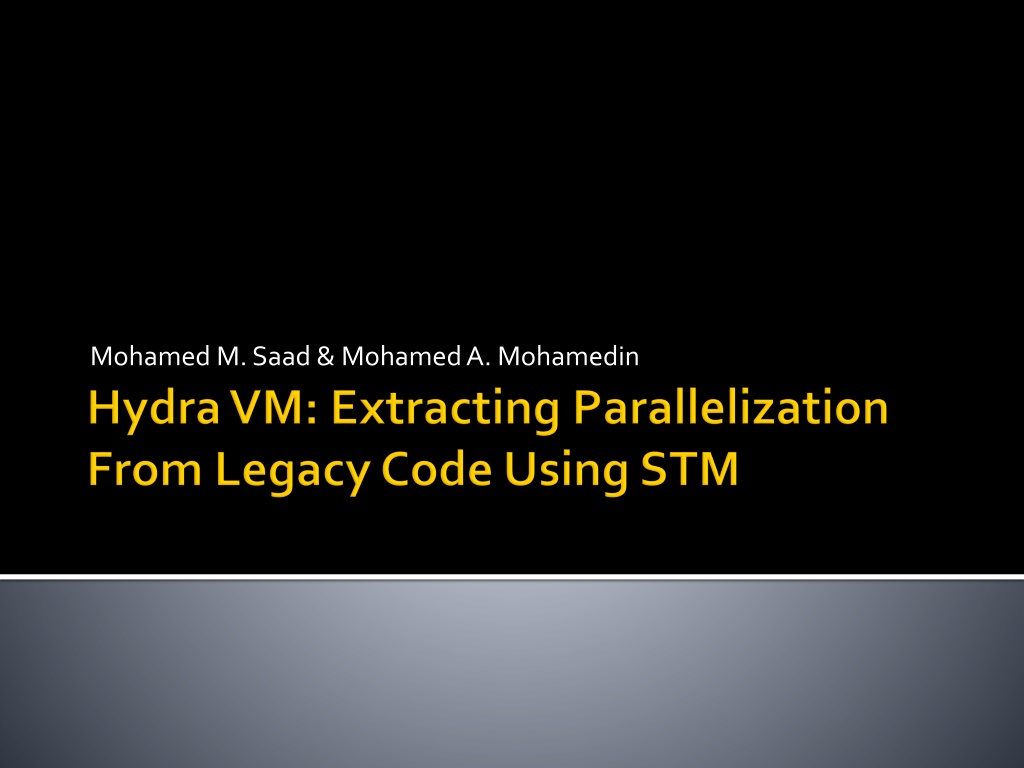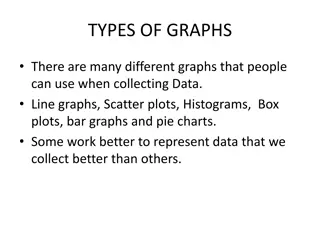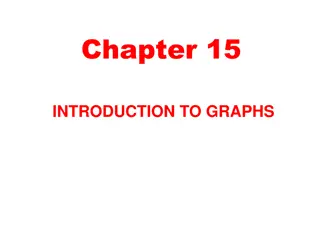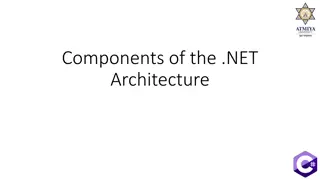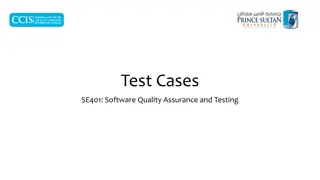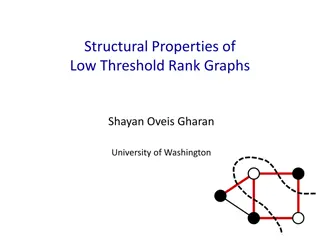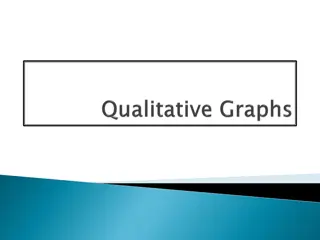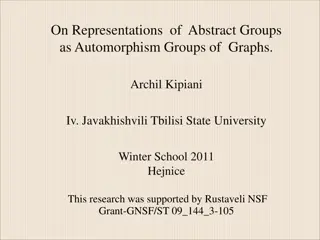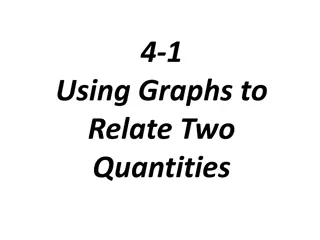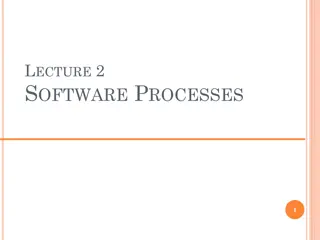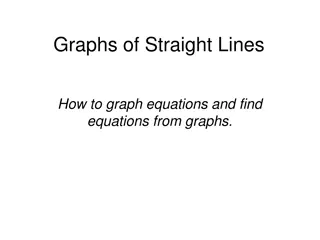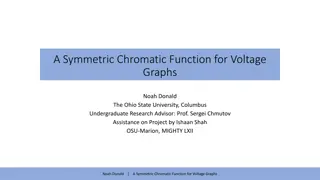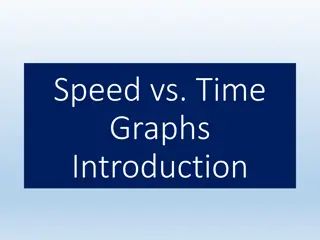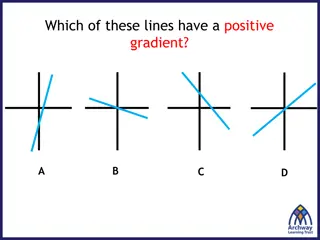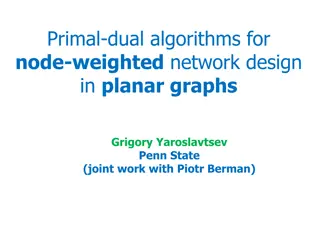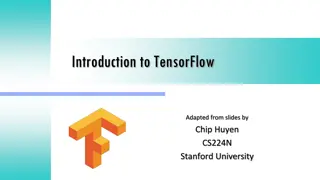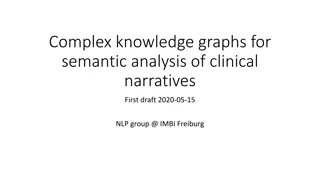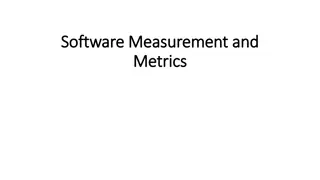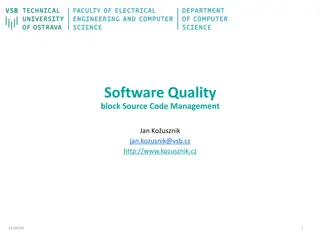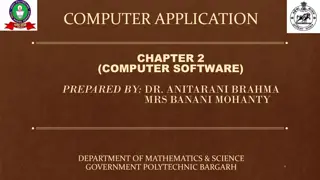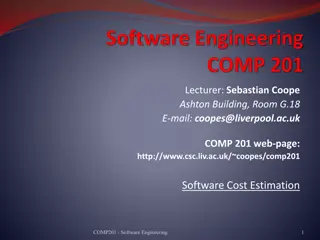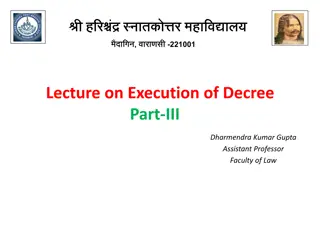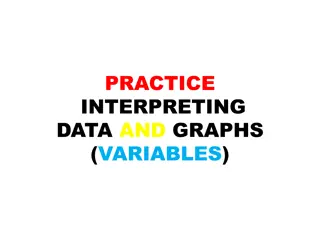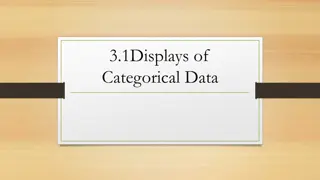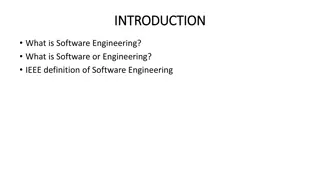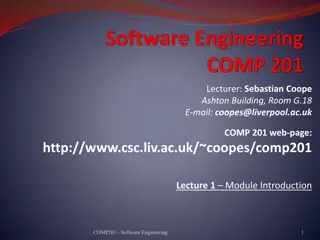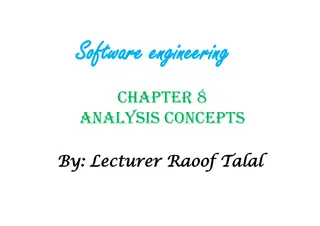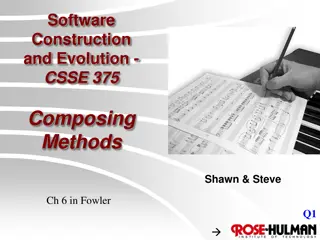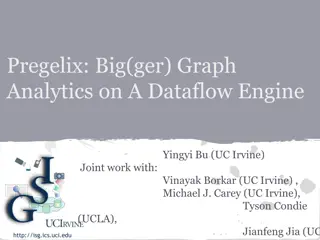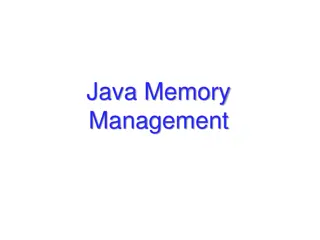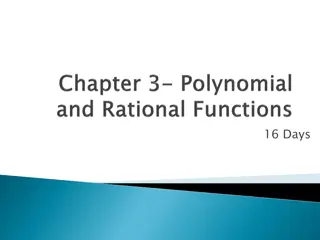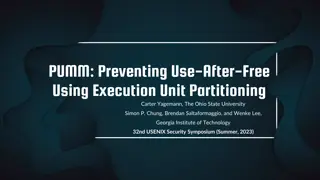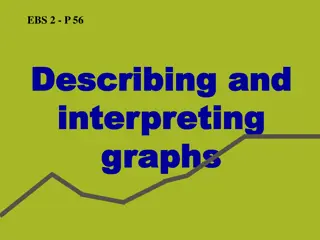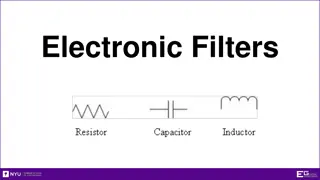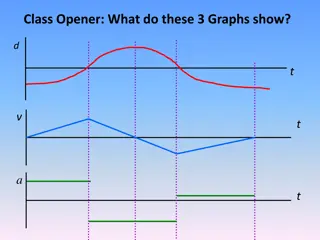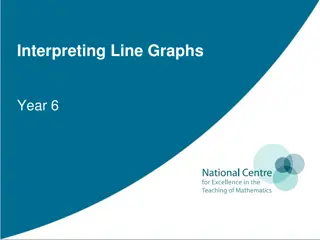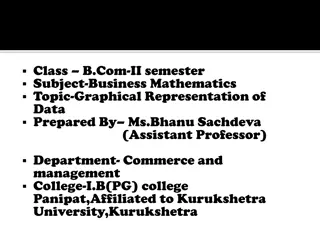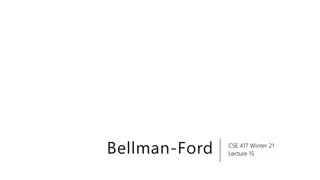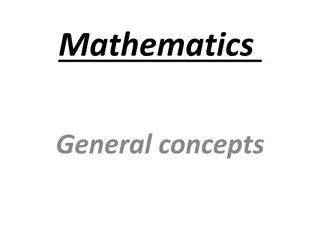Understanding Code Execution Graphs and Superblocks in Software Analysis
Explore the concepts of Static Execution Graphs, Dynamic Execution Graphs, Superblocks, hot-path detection, and memory arithmetic in software analysis. Learn about the grouping of blocks, violation tracking, control dependencies, and code behaviors across time through these graphical representations.
Download Presentation

Please find below an Image/Link to download the presentation.
The content on the website is provided AS IS for your information and personal use only. It may not be sold, licensed, or shared on other websites without obtaining consent from the author. Download presentation by click this link. If you encounter any issues during the download, it is possible that the publisher has removed the file from their server.
E N D
Presentation Transcript
Static Execution Graph Nodes; can be either Basic Blocks; a sequence of non-branching instructions Variables Edges; represents the frequency of access Dynamic Execution Graph Capture the behavior of the code across the time (i.e. relation between block and itself in the future)
Superblock; is a set of basic blocks, it has multiple entries, multiple exists. The suitable Entry & Exist are determined at runtime `
Grouping of blocks Hot-Path detection Static data access analysis Violations Reference Tracking (e.g. function calls) Memory Arithmetic (e.g. arrays) STM will handle these violations Reconstruction (OoO handling) Control Dependencies
0: getstatic #13; //Field java/lang/System.out:Ljava/io/PrintStream; 3: ldc #19; //String start 5: invokevirtual #21; //Method java/io/PrintStream.println:(Ljava/lang/String;)V 8: iconst_0 9: istore_1 10: invokestatic #27; //Method java/lang/Math.random:()D 13: ldc2_w #33; //double 0.3d 16: dcmpl 17: ifle 26 2 4 5 1 System.out.println( start"); int counter=0; if(Math.random()>0.3) counter++; else counter--; System.out.println( end"); 20: iinc 1, 1 23: goto 29 3 26: iinc 1, -1 29: getstatic #13; //Field java/lang/System.out:Ljava/io/PrintStream; 32: ldc #35; //String end 34: invokevirtual #21; //Method java/io/PrintStream.println:(Ljava/lang/String;)V 37: return
0: getstatic #13; //Field java/lang/System.out:Ljava/io/PrintStream; 3: ldc #19; //String start 5: invokevirtual #21; //Method java/io/PrintStream.println:(Ljava/lang/String;)V 8: iconst_0 9: istore_1 10: invokestatic #27; //Method java/lang/Math.random:()D 13: ldc2_w #33; //double 0.3d 16: dcmpl 17: ifle 23 20: hydra_iload 2 22: ireturn System.out.println( start"); int counter=0; if(Math.random()>0.3) counter++; else counter--; System.out.println( end"); 23: iinc 1, -1 26: hydra_iload 4 28: ireturn 0: getstatic #13; //Field java/lang/System.out:Ljava/io/PrintStream; 3: ldc #19; //String start 5: invokevirtual #21; //Method java/io/PrintStream.println:(Ljava/lang/String;)V 8: iconst_0 9: istore_1 10: invokestatic #27; //Method java/lang/Math.random:()D 13: ldc2_w #33; //double 0.3d 16: dcmpl 17: ifle 26
Synchronizing the same local variables after being split in two or more superblocks blocks Detecting thread memory access reads/writes at VM level (STM) Dynamic Execution Graph (loops handling) OoO handling & Control Dependencies Irrevocable blocks (i.e. I/O operations) Strong Atomicity Exploiting parallelization with Arrays
